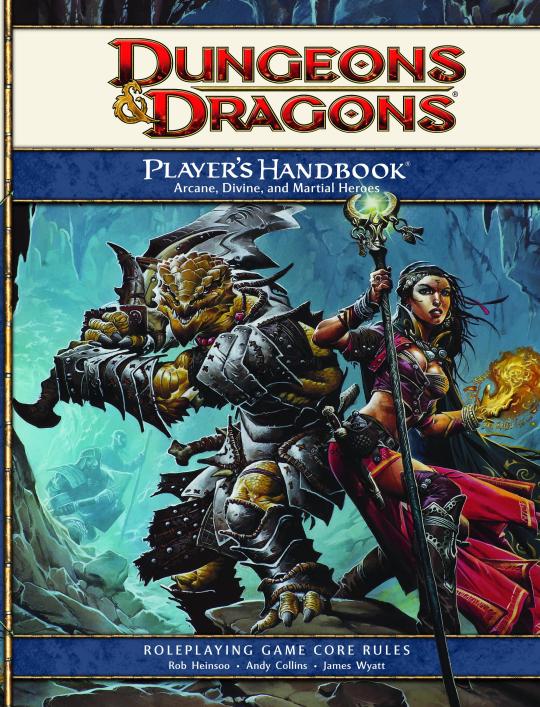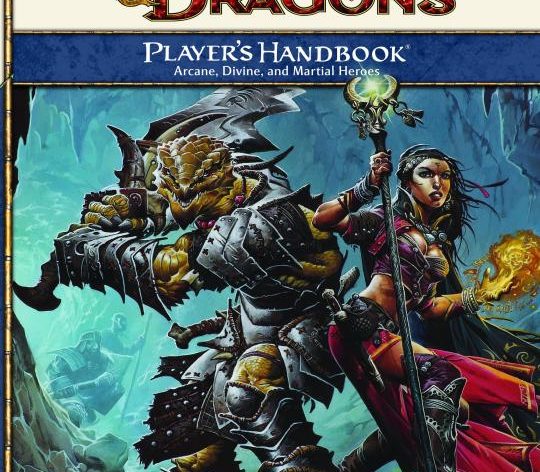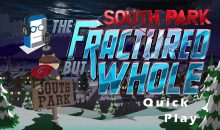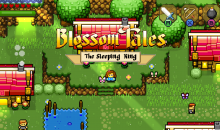Your First D&D Experience

About a year ago, I was recruited into an excellent Dungeons and Dragons game. It had recently lost a player after the game had been running for a bit over a year. I was excited – the DM sketched out a possible character idea for me and we were playing in one of Wizards of the Coast’s cooler settings; Dark Sun.
My big problem was that before this game, my experience with not just D&D but ANY tabletop RPG was extremely limited. I’d played in a very short lived Legend of the Five Rings game and two also short disaster-ridden D&D campaigns (after the second try we all came to a silent agreement to never speak of it again, like it was some kind of horrible crime) as well as some Big Eyes, Small Mouth when I was in highschool – but that’s right up there with Sailor Moon fanfiction on the list of ‘things we don’t talk about’.
Getting into a long-running game with some very experienced players was really intimidating at first but it’s become a an awesomely fun experience and has kept me looking forward to game nights every week. It’s well worth my zombie-shambling through work the next day and has also had the bonus of giving the energy drink market a boost in sales.
Here’s some points to keep in mind for your first D&D game, though they can apply to other tabletop games as well. These are based off my own experiences but also feedback from others new to tabletop gaming in their first few games.
1. Don’t sweat the small stuff.
A year later and I occasionally still can’t remember how to move through the grid (how many squares is run? what’s the difference between slide and push? what is a bull rush and why couldn’t they come up with a better name for it?). 4th Edition (usually called “4th Ed” or “4.0”) has a ton of minutiae to remember and it can be overwhelming to take all of that in.
There are some great tools for helping yourself learn. Grab a crib sheet or make sure you have the Player’s Handbook (the “PHB”) tabbed with the sections you need the most often. Don’t be afraid to ask what you may think are dumb questions. Most players are happy to share their knowledge. REALLY happy. Tabletop players in general really love their knowledge. Maybe a little too much. I wouldn’t touch their knowledge with bare hands, is what I’m saying.
2. Learn to understand the mechanics.
New players tend to ask a question, get a complicated answer and just nod without grasping the details; you can see their eyes glaze over as soon as dry terms like ‘combat advantage’ and ‘damage type’ enter the conversation. It’s very easy to have someone more experienced tell you ‘this is what you should do because of X, Y, and Z.’
The key to really getting into the game is understanding what X, Y and Z are and then understanding why they’re good or bad. If you use the fantastic character builder, take some time outside of game to really read your character sheet thoroughly. Learn your class and learn your character. If you’re having a hard time grasping a concept, talk to a more experienced player or your GM and ask them to go over it step by step. People at your game will be happy to help you learn your character – they’d much rather have you get it than spend every round of combat flailing their arms wildly and begging “Learn your abilities! Learn your feats! LEARN YOUR CHARACTER’S NAME!”
The character builder is an excellent tool for a new player, but make sure you understand how each aspect of your character (powers, feats, stats) work together. When you start to understand the synergy of a character build, you start building awesome characters.
(As a side note, it’s also worth taking some time, either comparing via the PHBs or asking your GM for help, to make sure your character builder created sheet is correct. While the builder is a great tool, a lot of Wizards of the Coast’s programming suffers from a severe case of being shitty. We’ve had it insert random points into stats now and again or refuse to recognize gear.)
3. Role-play in the RPG.
One of the most difficult things to get involved with as a new player is the actual role-playing aspect of a game, especially when your GM runs a RP-heavy campaign. However, getting involved with RP and building in-character relationships with the rest of the party and NPCs is one of the most rewarding parts about tabletop RPGs. When you start engaging in-character, the game takes on a whole new level of complexity that really immerses you as a player. Most importantly, it becomes more fun. Start slowly if you’re too shy to jump into role-play feet first but don’t ever feel like you shouldn’t contribute. You’re in a role-playing game for a reason!
Don’t know how to start? Start with your character, just like everything else in tabletop gaming. You’ve got a race and a class, now start building a personality to go along with them. Think about common tabletop experiences (An elf, a barbarian and a wizard walk into a pub…) and how your character would react to those situations. Worried about your acting chops? Think of some social skill you’re decent at (my personal go-to move is always ‘deadpan snarker’) and make that part of your character’s personality. Once you get comfortable with at the table RP action, definitely expand yourself – give your character different values, make new characters that aren’t anything like you. Experiment and have fun with it. (Just please don’t ever let your character name their weapon Twinkle. It doesn’t matter how many novels you’ve sold.)
4. Don’t get discouraged.
It’s the dungeon’s end boss! You just popped your daily and rolled a 3, which misses. Going for broke, you use your action point and pop your second daily. You roll a 1, crit-failing. Your turn is over with nothing but spent powers to show for it. Queue sitting quietly and fuming until the next round of combat, in which you declare defiantly and oh so dangerously, “I’m going to use an At-Will.” Terrifying.
You’re in the huge haunted library, wittily sparring with some ghosts that hold all the clues to the villain’s past. There’s a skill check challenge and your party hasn’t been faring well so far. It’s the last check and you’re the only one with the necessary skill trained. The DC for the check is 20. You have a +12 mod and you roll a 7. The ghosts yawn at your boring tangent about trade routes and float off with their clues, leaving your party ready to pelt the GM with dice.
There will always be nights where the dice aren’t on your side. It’s frustrating to have something spectacularly cool fail, or to miss out on something important because of a crappy roll. You have to remember that each time you roll badly, there could be a time when you roll that precious natural 20, when you hack some mob into quivering goo with one blow. Don’t focus on the failures; anticipate the victories.
5. Try, try again.
A common occurrence in tabletop gaming is when unavoidable issues end your game. It can be heartbreaking to stop playing after you’ve put so much effort into a character and a party.
Don’t give up!
Tabletop gaming is a widely diverse hobby. Beyond D&D there are scores of systems and settings to explore. Check with your local comics or games store to see if they have a tabletop night; many stores will run introductory games for free or very cheaply. There’s games run on internet forums and on IRC networks. You can find games at colleges and even in particularly nerdy workplaces.
Tabletop gaming can be a lifetime hobby. All it takes is one great party to get you hooked for years.







Pingback: Your First D&D Experience | control U Dot Me Gaming